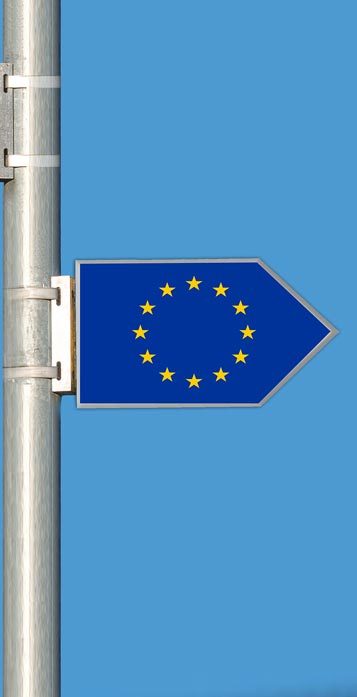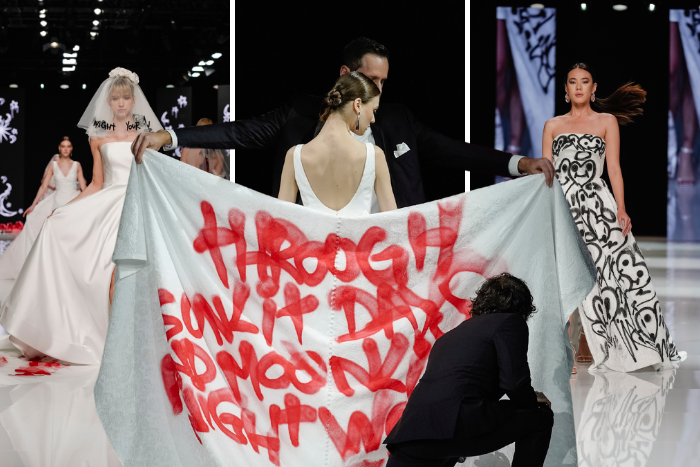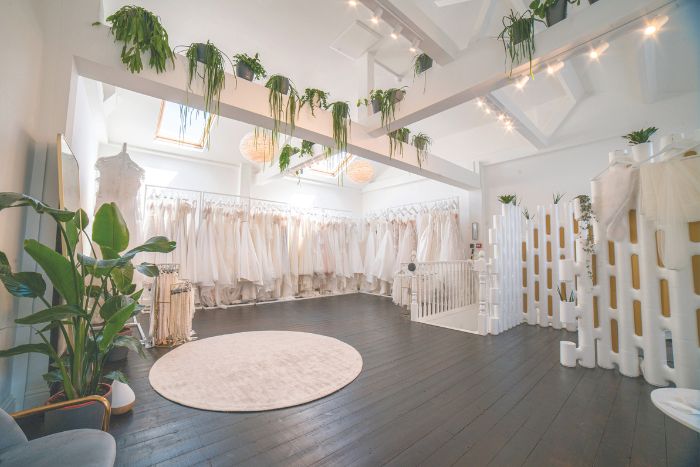What Does Brexit Mean for the UK Fashion Industry?
There has been a lot of industry chatter about Brexit and what it means – Fox Williams’s Fashion Law Group have put together a guide to understanding Brexit as a fashion business
Article 50 of the Treaty on European Union was triggered by the UK Government in March 2017 – this initiated the process of leaving the EU by starting the two-year negotiation period with the other 27 Member States of the EU.
Fox Williams have put together an incredibly in-depth look at the key aspects of the government’s Brexit plan and what the likely implications are for fashion businesses. We have pulled some of the key points for you here, but if you’d like to read the full report, you can find it here.
You can also read about how the most recent election impacted on Brexit here.
The Implication of Leaving the Customs Union
“It is time for Britain to get out into the world and rediscover its role as a great, global, trading nation.” This is the official line, but what does it mean?
Theresa May wants the UK to leave the customs union and to increase trade with fast-growing export markets, explains the report by Fox Williams. This will see the government negotiating new customs agreements whilst also trying to maintain tariff-free trade with the EU.
Particularly relevant for those in the fashion industry are deals with China, India, Vietnam and Bangladesh. These are key countries for production and manufacturing, so it is crucial that deals with them are achieved. The US is also an important export market, so it is essential a deal is established with them.
The longer it takes to negotiate new trade deals, the longer the UK’s period of uncertainty will continue and will impact businesses. Trade deals will take time to negotiate properly – and ‘most favoured nation’ clauses in existing trade agreements are likely to impact on the UK’s ability to make two-sided deals with different trade partners.
A ‘most favoured nation’ clause is an agreement in which a seller agrees to give the buyer the best terms to them first, before they make the offer available to any other buyers.
Will We Get a Free Trade Agreement with the EU?
The government’s position paper reveals they are pursuing a free trade agreement with the European Union. They are hopeful they will achieve a Free Trade Agreement and a Customs Agreement as quickly as they can within their two-year negotiation period.
Fox Williams compares the Free Trade Agreement to the Comprehensive Economic and Trade Agreement that is shared between Canada and the EU. However, that agreement took seven years to negotiate – each of the 28 Member States had to agree on the terms and the same process will take place for the UK’s proposed FTA – each of the 27 Member States must approve of it.
The Prime Minister has said that ‘No deal for the UK is better than a bad deal for the UK’ so it could be possible that no deal will be achieved by the time the two-year negotiation period has come to an end.
If this happens, the UK’s trade with the remaining Member States of the EU would have to operate under the World Trade Organisation’s rules. One of the core principles of the WTO rules of trade is non-discrimination, which means that goods traded between the UK and any other country, including the EU Member States, would be subject to customs tariffs. These would be based on the WTO’s most favoured nation rates.
As well as this, the UK will have to agree separate trade deals with each of the countries that have got preferential trade deals in place with the EU. Until this happens, the UK is subject to the most favoured nation rates determined by the WTO – and this will come as a disadvantage to UK fashion businesses.
Depending on what is agreed in the Free Trade Agreement with the EU, and the preferential trade agreements with non-EU countries, the free trade of fabric, textiles and garments between the UK, EU and countries which the UK had preferential trade deals with (through our EU membership) may be allowed to continue, but if it doesn’t then fashion businesses could find their supply chain arrangements hit by increased tariffs and custom duties.
Find out more about supply chains and Brexit’s effect on them here.
The Effect on Rules of Origin
Rules of origin is the criteria that determine the national source of a product – allowing companies to apply a ‘made in Britain’ label to their products – but this could be under threat if an FTA and a new customs agreement are not forged with the EU.
Currently, fashion businesses which export their products from the UK are able to apply a ‘made in Britain’ label, even when they have been sourced from other countries. As their products are still considered sufficiently ‘British’, they benefit from a reduced or zero rate of duty when they’re exported to EU countries and countries with which the EU has preferential arrangements with.
Following Brexit, fashion businesses which currently use the UK as their entry point to the EU will want to rethink their supply routes; they may choose to bypass the UK all together. It will become very important to determine how much of a product is produced in the UK, due to customs duties. The customs checks which the UK Government will need to introduce to enforce rules of origin will also result in an administration cost and a burden fashion businesses may want to avoid.
Immigration and Workers from the EU
Theresa May’s Brexit proposal suggests that all EU nationals looking to work in the UK will require a permit. Despite the published proposals, a deal is yet to be agreed with the EU parliament. If you’re a UK fashion business that relies on workers from the EU, the restrictions on ease of movement that are being suggested may lead to shortages of labour and increased labour costs.
This will obviously impact on profit margins and the operating budgets for companies affected by this, and it will also be career-limiting for those who wish to come from another country to work in the UK.
Find out more about how businesses could be impacted by Brexit here.
Competitive Tax Structures
Theresa May has implied that the government could implement new competitive tax structures in order to attract and retain businesses in the UK, if we are prevented from accessing the EU single market.
We already have one of the lowest corporate tax rates compared with other major economies. Lowering it even further will create an even more competitive tax structure, and it could have a positive effect on foreign investments.
It could lead to what Fox Williams describes as a ‘race to the bottom’ – a scenario where major countries try to outdo each other by changing their tax structures to make them more appealing.
Taking Control of Laws
The Prime Minister has suggested that by leaving the EU our laws will be made in the capital cities across the UK. This doesn’t however mean that EU law no longer applies to UK businesses. Even if an English law states that they are no longer required to comply with EU law – in order to continue trading with EU Member States, products must meet EU standards.
It is unlikely that laws relating to product liability regimes, consumer protection laws, Working Time Regulations and data protection will change. It is not yet clear what will happen with pan-European intellectual property rights (patents, designs and trademarks).
If, post-Brexit, the UK Government appear to be giving preferential treatment to UK businesses – favouring them over their EU counterparts – it’s likely to be counterproductive as EU Member States could potentially apply reactive measures, which would put the UK at a disadvantage.
Contracts that have previously been drawn up and refer to EU law will also need to be reviewed to determine whether the law referenced will continue to apply.
See what Richard Marsh of Rainbow Club had to say about Brexit.
The Financial Implications of Brexit for Businesses
If a free trade deal is not agreed, fashion businesses in the UK will need to consider the financial implications. It is important to consider the tariffs for import and export of goods to and from the EU that may be applied post-Brexit. The UK will also need to renegotiate rates with countries outside the EU and these could be more expensive.
The cost of supplies and labour may increase too. Think about how your business will cope with these potential cost increases – can they be passed on to the customer?
Increasing supply costs will impact emerging designers, who source materials from outside the UK and produce their products in other EU countries, the most. It could affect emerging businesses, but it could also encourage a new ‘Made in Britain’ culture, where companies source within Britain to avoid exchange rates.
Brexit and Your Commercial Contracts
Make sure you assess your key contracts – do they require renegotiating or amending in light of Brexit?
When writing new contracts, take the potential implications of Brexit into account in order to protect yourself – consider exchange rate variation and inflation clauses and address tariffs for imports and exports to and from the EU and additional customs procedures.
You should also think about whether the UK will include the UK after Brexit and include express provision for that. Think as well about instances where EU legislation may be modified or repealed.
It is currently unclear what will happen to EU-wide registered intellectual property rights, in particular to EU trademarks and licences granted to cover those rights.
How to Combat the Additional Costs
In order to avoid potential tariffs or to at least take advantage of reduced rates, fashion businesses may want to think about setting up EU-based subsidiaries. You may need to review your supply chain arrangements and consider routing your products through countries with more favourable tariffs. Weigh up the potential savings against the additional time it will take.
Want to read more? Check out what happened at PURE London’s Brexit panel.





